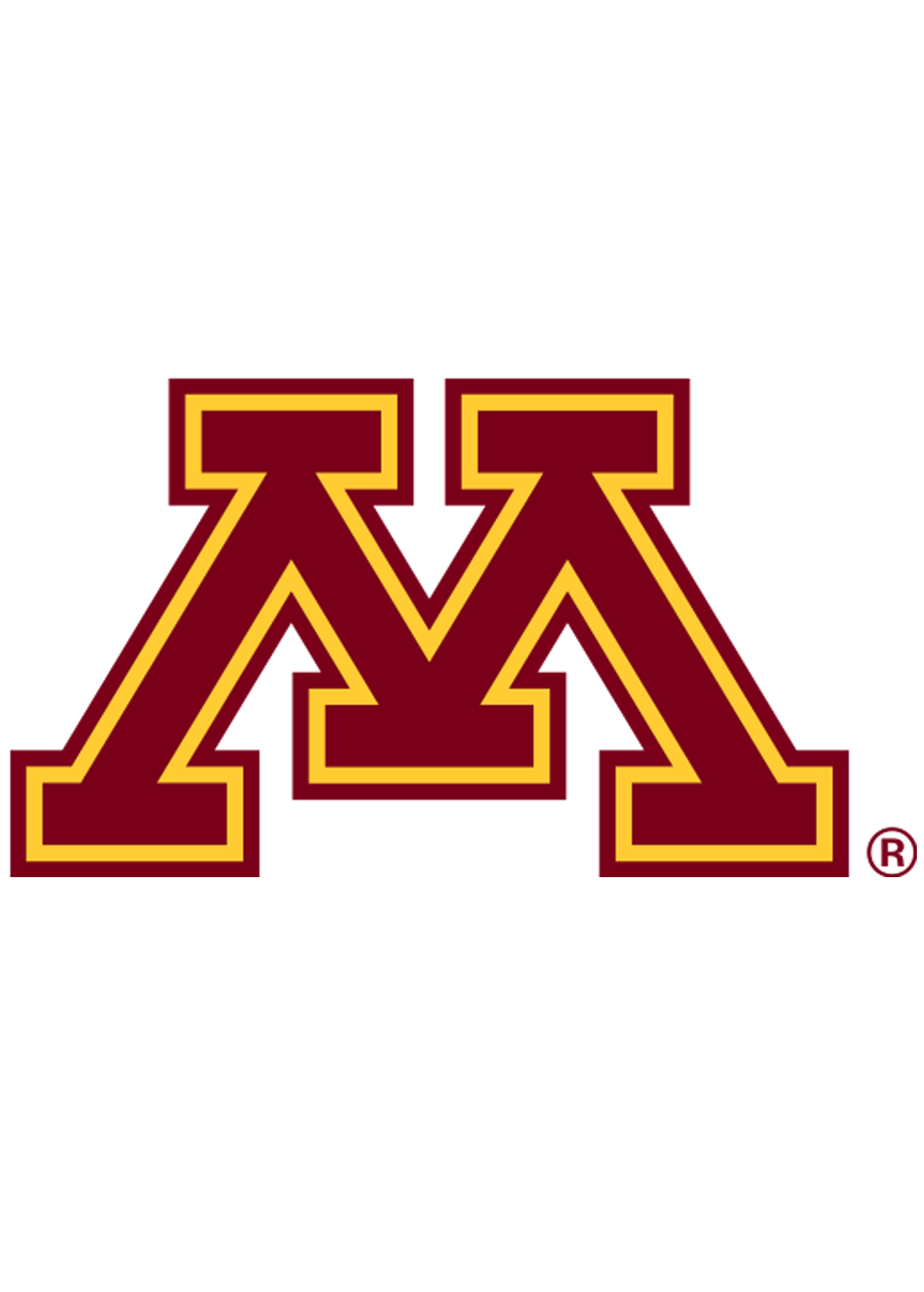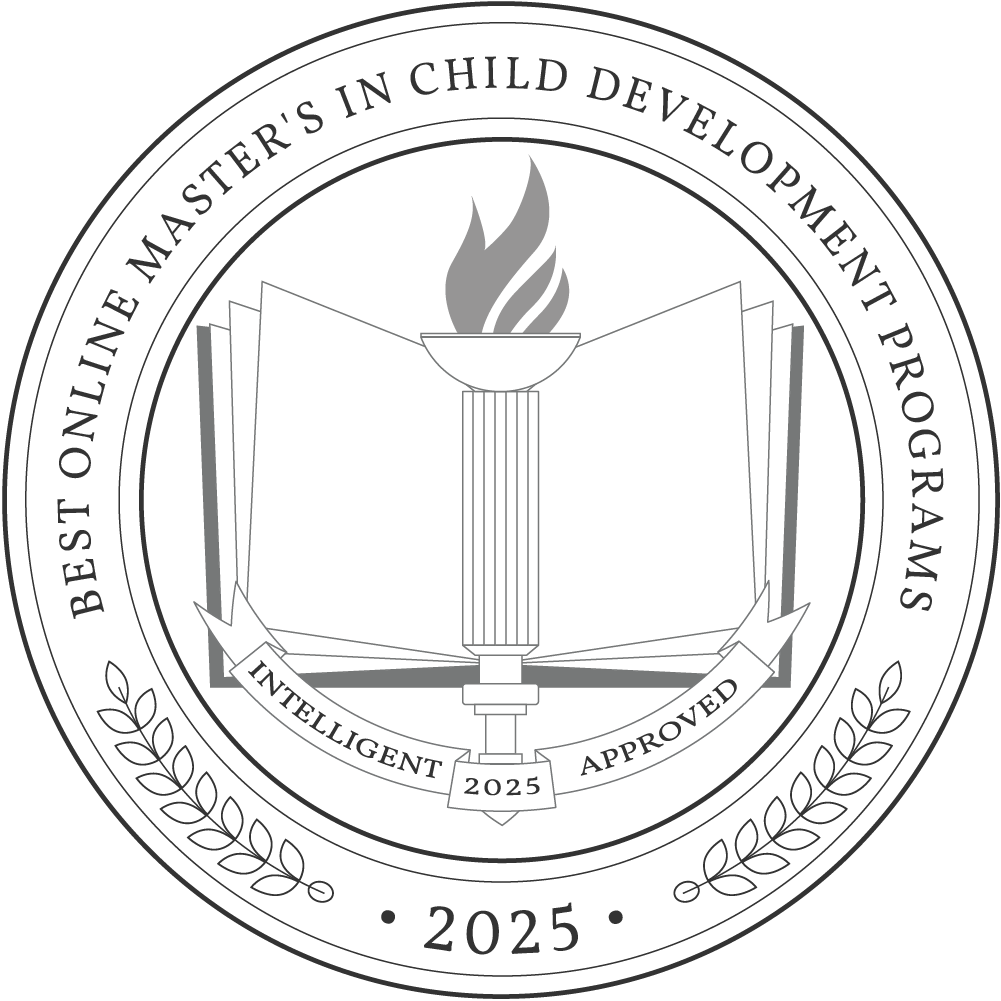The study of child development emphasizes the social, emotional, and physical changes that children experience as they age. This specialty spans several disciplines, notably psychology, education, and social services. Some professions, such as school counselors or social workers, require professional licensure to practice.
Education and mental health providers are in high demand. The Bureau of Labor Statistics projects that employment opportunities for social workers, school counselors, and mental health counselors will increase at a faster-than-average pace over the next few years. These professionals make between $50,000 and $65,000 annually.
Positions in these fields often require a master’s degree. Full-time students can graduate from most master’s in child development programs within two years, as the average course of study is 32 credits (10 to 12 classes).
Why Trust Us
The Intelligent.com Higher Education Team is dedicated to providing students with independent, equitable school and program rankings and well-researched resources. Our expert-driven articles cover topics related to online colleges and programs, paying for school, and career outlooks. We use data from the U.S. Department of Education’s College Scorecard, the National Center for Education Statistics, and other reputable educational and professional organizations. Our academic advisory team reviews content and verifies accuracy throughout the year for the most current information. Partnerships do not influence rankings or editorial decisions.
- Analyzed over 2,000 national, accredited, and nonprofit colleges and universities
- 800+ rankings pages are reviewed and updated yearly
- Content is informed by reputable sources, surveys, and interviews with academic advisors and other experts
- Over 100 data points are reviewed for accuracy and quality throughout the year, including sources
How we rank schools
Our list features the best online Child Development degree programs at top colleges nationwide. Each school featured is a nonprofit, accredited institution — either public or private — with a high standard of academic quality for post-secondary institutions.
We evaluated each school’s program on tuition costs, admission, retention and graduation rates, faculty, reputation, and the student resources provided for online students. We collected data from trusted sources like the National Center for Education Statistics, individual school and program websites, school admissions counselors, and other data sources. Then, we calculated the Intelligent Score on a scale of 0 to 100 based on the following criterion:
Academic Quality:
- Admission rate versus enrollment rate
- Retention rate of students who return after year one
- Accreditation status (regional and programmatic)
- Nonprofit status, both private and public institutions
Graduation Rate
- Overall graduation rate
- Total number of currently enrolled students, including diversity metrics
- Student-to-faculty ratio
Cost and ROI
- In-state and out-of-state per-credit tuition rates and fees
- Required credits to graduate
- Earning potential after graduation
- Availability of federal student loans, scholarships, and other financial aid options
Student Resources
- Available student services for online-only and hybrid programs
- On-campus amenities like tutoring centers and the number of libraries
Read more about our ranking methodology.
Best 4 Accredited Online Master's in Child Development Programs
FiltersInstitution Type
Status
- Intelligent Score
- Alphabetically By University Name
- Acceptance Rate
- Enrollment
- In-state Graduate Tuition
- Out-of-state Graduate Tuition
- In-state Undergraduate Tuition
- Out-of-state Undergraduate Tuition

University of Minnesota
Intelligent Score: 96.25In-state: $13,318
Out-of-state: $31,616
In-state: $17,580
Out-of-state: $17,580
SAT: 1240-1460
ACT: 25-31
$1,593
Online
Higher Learning Commission
32

Missouri State University
Intelligent Score: 96.20In-state: $6,840
Out-of-state: $15,510
In-state: $5,436
Out-of-state: $5,436
SAT: 1020-1220
ACT: 21-27
$379
Online
Higher Learning Commission
32

Southern New Hampshire University
Intelligent Score: 90.90In-state: $9,600
Out-of-state: $9,600
In-state: $18,810
Out-of-state: $18,810
SAT: N/A
ACT: N/A
$637
Online
New England Commission of Higher Education, Inc. (
36

University of Nebraska - Lincoln
Intelligent Score: 90.77In-state: $7,770
Out-of-state: $24,900
In-state: $6,138
Out-of-state: $6,138
SAT: 1110-1320
ACT: 22-28
Resident: $357
Non-Resident: $776
Online
Higher Learning Commission
30
How to Choose an Online Master’s in Child Development Program
Choose your area of study
This degree may be available as a Master of Science (MS), Master of Arts (MA), or Master of Education (MEd). Furthermore, some programs will allow you to select a concentration and focus your studies on a particular niche in this field, such as early childhood education, counseling, or healthcare. If you already know what you would like to do after you graduate, look for programs that closely match these career goals.
Research schools and programs
You should only consider institutions that have been approved by a DOE-recognized regional accrediting organization, such as the New England Commission of Higher Education or Northwest Commission on Colleges and Universities. These organizations evaluate schools to ensure they provide students with a high-quality education. Those who attend a school that isn’t regionally accredited may be unable to access financial aid or transfer credits to another institution if needed.
You should look for programmatic accreditation as well. The Council for Accreditation of Counseling and Related Educational Programs (CACREP) and the Master’s in Psychology and Counseling Accreditation Council (MPCAC) are the leading organizations for master’s-level counseling programs. The Behavior Analyst Certification Board (BACB) verifies standards for behavioral analysis degrees, and the Council for the Accreditation of Educator Preparation (CAEP) approves teacher-specific degrees.
From there, research the following aspects of each program:
- Does the program integrate hands-on practice? Counseling, social work, and education programs should include role-modeling exercises and fieldwork; graduates need time to develop the practical application of the skills they learn in the classroom. Seek master’s degrees incorporating internships, supervised fieldwork, or a practicum.
- Does the program meet the academic and fieldwork qualifications to become a licensed provider or teacher? Not all child development programs lead to licensure. Some are designed for practicing educators seeking to enhance their skills with young learners, others for those interested in doctorate-level research. Determine whether your state requires licensure for your selected career.
To learn more about any schools that you’re interested in, you can visit the school’s website, contact an admissions counselor, follow the school on social media, or attend an in-person or virtual open house.
Prepare for tests and applications
Application requirements vary by school and program. You will likely need a bachelor’s degree from an accredited institution in a related subject (such as psychology). Most programs set a minimum undergraduate GPA.
These programs often require undergraduate transcripts, letters of recommendation, and a personal statement. Be sure to gather these materials well in advance of deadlines. Most master’s in child development programs don’t require GRE scores. Always contact an admissions counselor to ensure you have the most accurate information regarding requirements and deadlines.
Select your program
Before making your final decision, review your needs and goals again. Do you plan to attend school full-time or part-time? Do you want your program to be as online as possible, or are you fine with a hybrid program that has a fair amount of in-person requirements? Some programs offer asynchronous courses, which can be completed at your own pace, while others only offer synchronous courses, which involve remotely attending lectures and completing assignments at the same time as other students — which of these two online learning formats do you prefer? Your school should accommodate your scheduling needs and learning preferences.
Determine how you’ll pay for your degree
There are several avenues to consider for funding your education. First, submit a FAFSA form. Regardless of how you’ll pay, the FAFSA can determine your eligibility for federal assistance and affordable loans. If you currently work in an education, counseling, or social services setting, speak to your employer about possible tuition assistance; some organizations have resources to invest in your continuing education.
From there, speak to a financial aid counselor for your school. These individuals can help you find scholarships or other funding for which you qualify, such as military discounts. Finally, work with an academic advisor to see if any prior coursework or professional experience could earn you transfer credit.
What Can You Expect from an Online Master’s in Child Development Program?
Child development applies human development theory to children’s specific experiences and needs. An online master’s in child development program provides graduate students with a foundation for many possible career opportunities. Some become early childhood education teachers, family advocates, or school counselors. Others might continue to a doctoral program for more in-depth research. Child development coursework helps graduates better support young classroom learners and develop strategies to assist families.
These degrees are typically meant for working professionals who require the flexibility that online coursework provides. Most programs are entirely online, though fieldwork or internships will necessitate in-person work at a local institution. Some online degrees integrate occasional in-person requirements, including residencies or specialized courses.
Potential courses you’ll take in an online master’s in child development program
- Developmental Psychology. Participants learn about the fundamental theoretical frameworks for childhood and adolescent development, including cognition, physical biology, social factors, and emotional development. Students discuss how different approaches apply to real-world case studies.
- Intervention Strategies. This course discusses standard best practices for intervention in child and adolescent development. Students discuss how to apply strategies to actual situations.
- Play and Social World of the Child. Students examine how children establish relationships with family members, peers, and teachers. Coursework emphasizes strategies for establishing more inclusive education settings.
- Mathematics in Early Childhood Years. Participants concentrate on how young learners develop their mathematical concepts. Students learn how to apply theoretical principles and state standards to actual practice in the classroom.
What Can You Do With an Online Master’s in Child Development?
Career outlook
Graduates with an online master’s in child development have many rewarding career paths to choose from, each focused on positively impacting the lives of children and families. As society places greater emphasis on early childhood education and intervention, the need for specialists who understand child development is on the rise.
Here are some possible career options for individuals with this degree:
- Preschool teacher — Teach language, motor, and social skills to children who are too young to enter kindergarten.
- Median annual salary: $37,130
- Projected employment growth (through 2032): 3%
- New job openings projected: 56,300 annually
- School or career counselor — School counselors help students develop academic and social skills, while career counselors assist students with choosing an occupation and taking the steps needed to reach their career goals.
- Median annual salary: $61,710
- Projected employment growth (through 2032): 5%
- New job openings projected: 26,600 annually
- Social worker — Help individuals and families deal with problems in their everyday lives, such as health, behavioral, and financial issues.
- Median annual salary: $58,380
- Projected employment growth (through 2032): 7%
- New job openings projected: 63,800 annually
Online Master’s in Child Development Degree Frequently Asked Questions
How do I apply to an online master's in child development degree program?
You can apply to each program through the school’s admissions portal online. Some schools operate on rolling admissions, with several start dates throughout the year. However, most have firm submission deadlines. While specific requirements vary from school to school, most applications include the following:
- A completed application form
- Official transcripts from an accredited undergraduate program proving completion of prerequisite coursework
- A personal statement
- Letters of professional or academic recommendation
- A background check (if applicable)
- A processing fee
Contact an admissions advisor with any questions you have regarding the application process.
How much does an online master's in child development degree cost?
The average annual tuition for a graduate degree program is $20,513. Private schools tend to be more expensive than public schools, though public schools usually charge out-of-state students a much higher tuition rate than in-state students. In addition to tuition, the total cost for your master’s degree may include books, travel expenses for in-person residencies or fieldwork, and computer-related expenses.
How long does it take to earn an online master's in child development degree?
A typical master’s degree in child development is 30 to 36 credit hours. Full-time attendees can graduate within two years. Those who qualify for transfer credit or enroll in an accelerated option could finish their program in less time. Should you select a degree program that meets the qualifications for professional licensure, it may take longer, especially for completing the supervised fieldwork experience portion of the program.
Is an online master's in child development worth it?
Pursuing an online master’s in child development offers a multitude of benefits for individuals passionate about promoting the well-being and growth of children. This degree prepares students for leadership positions that provide fulfilling work, often with more generous salary options than are available to bachelor’s-level candidates.
An online master’s in child development equips graduates with a deep understanding of developmental theories and best practices, information that is essential to creating nurturing and supportive environments for children. As society increasingly recognizes the importance of early childhood education and intervention, the demand for professionals with this expertise is expected to grow, leading to a diverse job pool with many rewarding opportunities available for graduates.
Earning a degree online provides increased flexibility, especially in programs that offer asynchronous classes, making them an ideal choice for adult learners with other personal and professional commitments.
Read More about Online Master’s in Child Development Degree Programs
Compare School Options
Related Degrees
- Math Education
- Gifted and Talented Education
- Secondary Education
- Early Childhood Education
- Higher Education
- Education
- Assessment and Measurement
- K-12 Education
- Elementary Education
- Curriculum and Instruction

